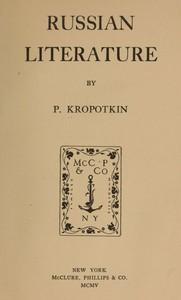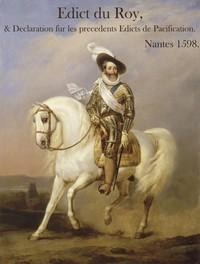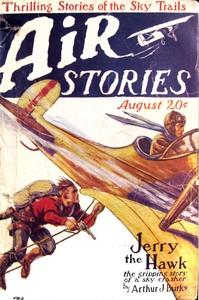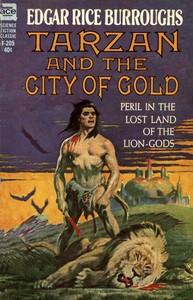|
|
Read this ebook for free! No credit card needed, absolutely nothing to pay.Words: 127183 in 37 pages
This is an ebook sharing website. You can read the uploaded ebooks for free here. No credit cards needed, nothing to pay. If you want to own a digital copy of the ebook, or want to read offline with your favorite ebook-reader, then you can choose to buy and download the ebook.

: Russian literature by Kropotkin Petr Alekseevich Kniaz - Russian literature 19th century History and criticism@FreeBooksSun 26 Nov, 2023 PREFACE v Their position in Russian literature--The early folk-novelists--Grig?rovitch--M?rko Vovtch?k--Danil?vskiy--Intermediate period: K?koreff; P?semskiy; Potyekhin--Ethnographical researches--The realistic school: Pomyal?vskiy--Ryeshetnikoff--Lev?toff--Gleb Uspenskiy--Zlatovr?tskiy and other folk-novelists: Na?moff--Zas?dimskiy--S?loff--Nef?doff--Modern realism: Maxim Gorkiy. BIBLIOGRAPHICAL NOTES 319 INDEX 321 PART I Introduction: The Russian Language Like all other languages, the Russian has adopted many foreign words: Scandinavian, Turkish, Mongolian, and, lately, Greek and Latin. But notwithstanding the assimilation of many nations and stems of the Ural-Altayan or Turanian stock which has been accomplished in the course of ages by the Russian nation, her language has remained remarkably pure. It is striking indeed to see how the translation of the Bible which was made in the ninth century into the language currently spoken by the Moravians and the South Slavonians remains comprehensible, down to the present time, to the average Russian. Grammatical forms and the construction of sentences are indeed quite different now. But the roots, as well as a very considerable number of words, remain the same as those which were used in current talk a thousand years ago. I wish that I could give here an idea of the beauty of the structure of the Russian language, such as it was spoken early in the eleventh century in North Russia, a sample of which has been preserved in the sermon of a N?vgorod bishop . The short sentences of this sermon, calculated to be understood by a newly christened flock, are really beautiful; while the bishop's conceptions of Christianity, utterly devoid of Byzantine gnosticism, are most characteristic of the manner in which Christianity was and is still understood by the masses of the Russian folk. EARLY FOLK-LITERATURE: FOLK-LORE--SONGS--SAGAS The early folk-literature of Russia, part of which is still preserved in the memories of the people alone, is wonderfully rich and full of the deepest interest. No nation of Western Europe possesses such an astonishing wealth of traditions, tales, and lyric folk-songs--some of them of the greatest beauty--and such a rich cycle of archaic epic songs, as Russia does. Of course, all European nations have had, once upon a time, an equally rich folk-literature; but the great bulk of it was lost before scientific explorers had understood its value or begun to collect it. In Russia, this treasure was preserved in remote villages untouched by civilisation, especially in the region round Lake On?ga; and when the folk-lorists began to collect it, in the eighteenth and nineteenth centuries, they found in Northern Russia and in Little Russia old bards still going about the villages with their primitive string instruments, and reciting poems of a very ancient origin. Besides, a variety of very old songs are sung still by the village folk themselves. Every annual holiday--Christmas, Easter, Midsummer Day--has its own cycle of songs, which have been preserved, with their melodies, even from pagan times. At each marriage, which is accompanied by a very complicated ceremonial, and at each burial, similarly old songs are sung by the peasant women. Many of them have, of course, deteriorated in the course of ages; of many others mere fragments have survived; but, mindful of the popular saying that "never a word must be cast out of a song," the women in many localities continue to sing the most antique songs in full, even though the meaning of many of the words has already been lost. The gradual evolution and migration of myths, which are successively fastened upon new and local persons as they reach new countries, may perhaps aid to explain these contradictions. That there are mythological features in the heroes of the Russian epics may be taken as certain; only, the mythology they belong to is not Slavonian but Aryan altogether. Out of these mythological representations of the forces of Nature, human heroes were gradually evolved in the East. Free books android app tbrJar TBR JAR Read Free books online gutenberg More posts by @FreeBooks
: Edict du Roy & Declaration sur les precedents Edicts de Pacification by IV Henri -@FreeBooksSun 26 Nov, 2023
|
Terms of Use Stock Market News! © gutenberg.org.in2025 All Rights reserved.






